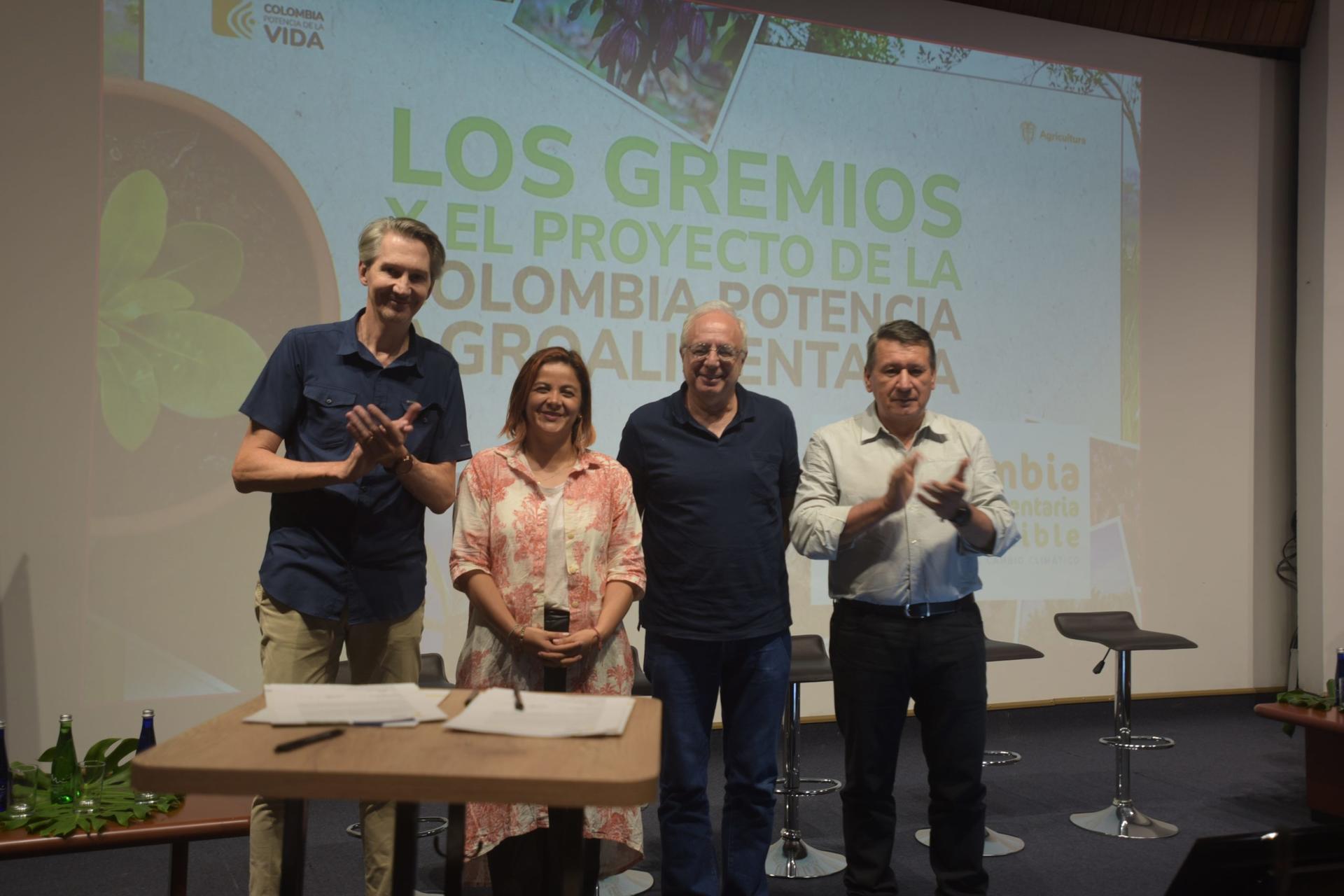Press and News Sowing Sustainability: The Road to a Climate-Smart Agri-Food System in Colombia

The Colombia Agroalimentaria Sostenible project reactivates its actions after a period of study and analysis by the Colombian Ministry of Agriculture and Rural Development (MADR), which has decided to continue and strengthen the commitment to reduce the vulnerability of agricultural production to climate hazards facing the country, seeking to maintain sufficient and stable availability of quality food through climate risk management to reduce greenhouse gas emissions generated by the sector.
For the implementation of the Project, the Bioversity - CIAT Alliance and the MADR have been working in coordination with the following 10 unions: Fedearroz (rice), Fenalce (corn), Fedegan (livestock), Fedepanela (sugar cane), Fedepapa (potato), Federación Nacional de Cafeteros - Cenicafe (coffee), Asocaña - Cenicaña (sugar cane), Augura, Asbama and Asohofrucol (musaceae).
"The 'Sustainable Agrifood Colombia' project is a solid rock from which we hope to cement the great bet on the decarbonization of agriculture, adaptability and response to climate change. We seek to reach a point of no return in this transition and in the way we produce food" Jhenifer Mojica, Minister of Agriculture and Rural Development
.
In addition, three research institutions are part of the strategic implementing partners: the Colombian Agricultural Research Corporation (Agrosavia), the International Maize and Wheat Improvement Center (CIMMYT) and the Center for Research in Sustainable Agricultural Production Systems (CIPAV) of Colombia.
The project is financed with a combination of financial resources from CAF (Development Bank of Latin America), the Government of Colombia, agricultural research institutions (Alianza Bioversity - CIAT, CYMMIT and CIPAV), and Colombian agricultural producer associations, and resources, both loans and concessional funds (grants) from the Green Climate Fund.
The project is financed with a combination of financial resources from CAF (Development Bank of Latin America), the Government of Colombia, agricultural research institutions (Alianza Bioversity - CIAT, CYMMIT and CIPAV), and Colombian agricultural producer associations, and resources, both loans and concessional funds (grants) from the Green Climate Fund.
This combination of efforts is the greatest strength of this initiative, as the commitment of all the actors involved will ensure that the technologies developed under this project reach every farmer directly in order to address climate variability and the changes that have affected agriculture in the country.
To achieve the above, the project will develop three interconnected components: 1. Digital agriculture and climate services for the modernization of agricultural extension services with emphasis on adaptation and mitigation. Genetic improvement, crop management techniques, technological options, scaling to increase resilience and promote low-carbon agricultural development and 3. Innovative and inclusive business models through modernized innovation systems and a more committed financial sector.
All activities will be carried out through a social, environmental and gender axis that will contribute to closing gender gaps in the prioritized production chains and promote equitable access by young people, men and women producers with different socioeconomic conditions to the project's services, goods and activities, including access to agro-climatic information, as well as sustainable and resilient production technologies and practices. Similarly, a monitoring and evaluation system will be established to collect information from different sources and carry out periodic follow-up analysis of the proposed objectives.
To learn more about the Colombia Agroalimentaria Sostenible project: https://agropecuariaysostenible.co
Original publication: Sowing Sustainability: the path to a climate-smart agri-food system in Colombia
